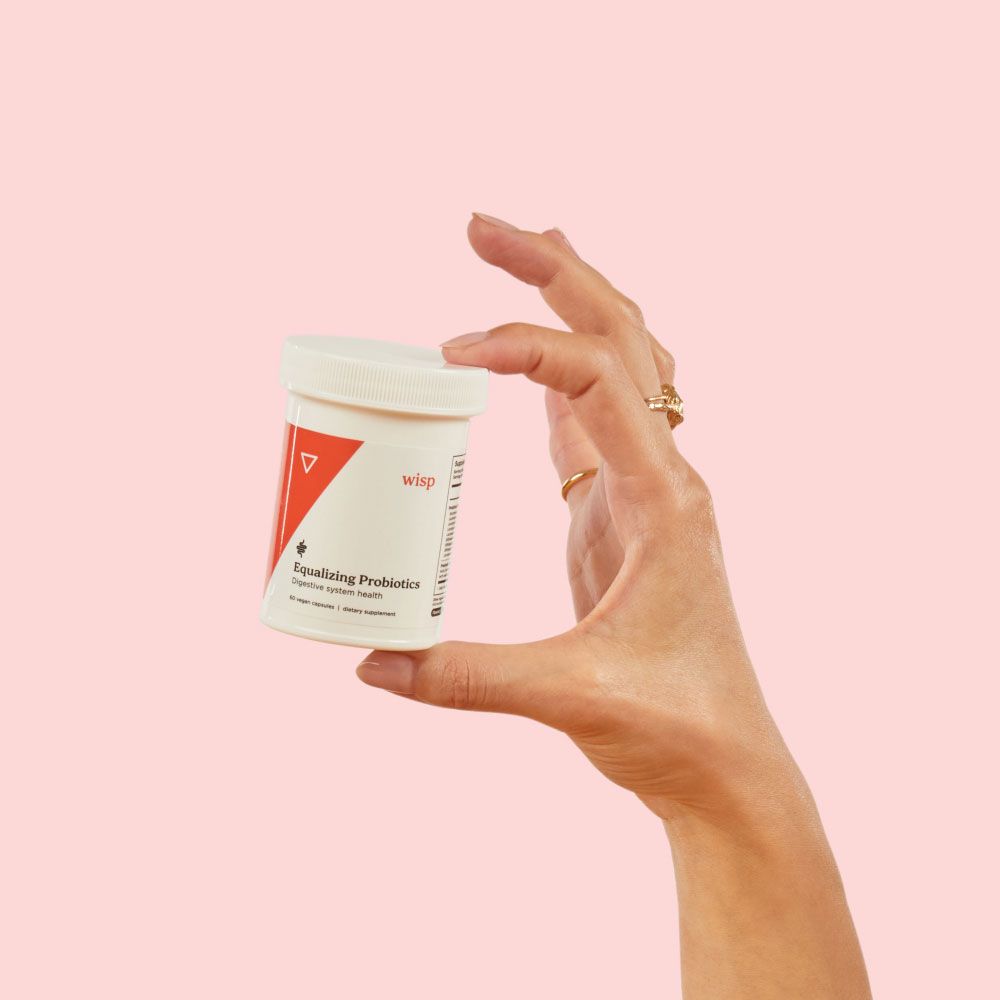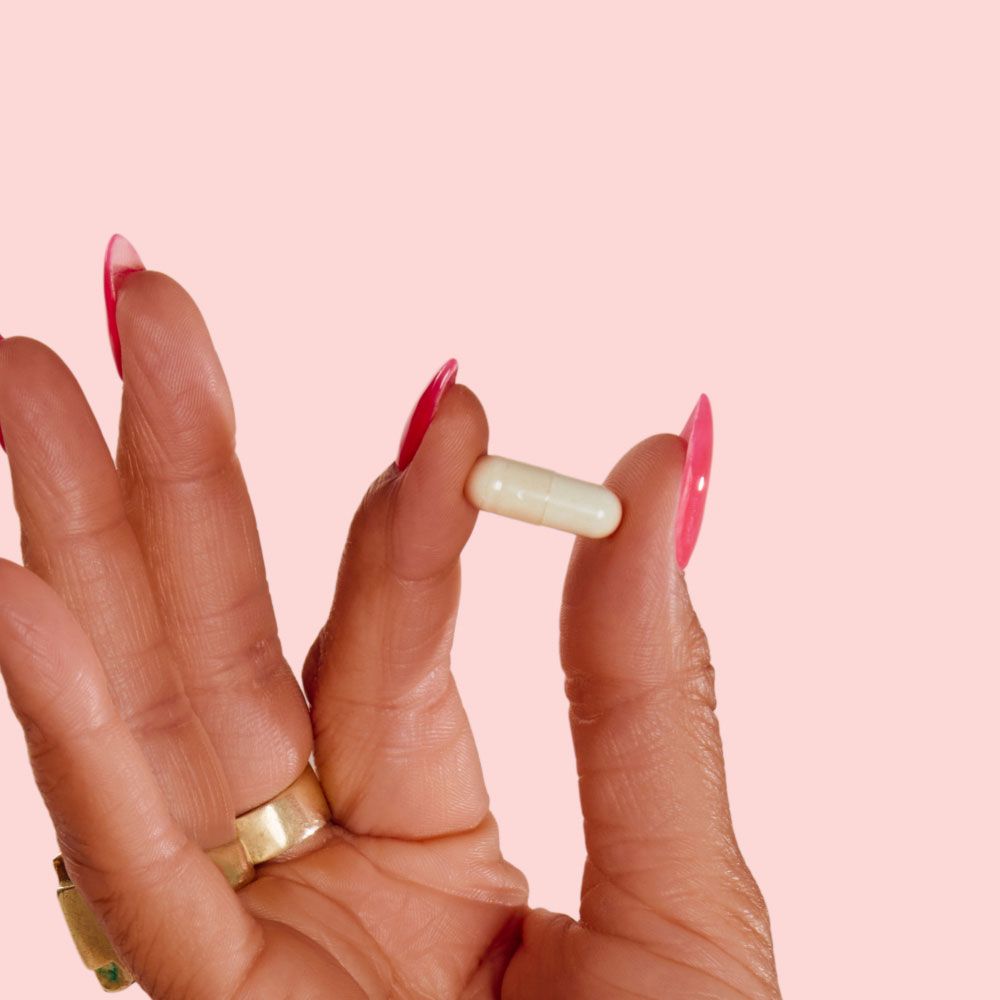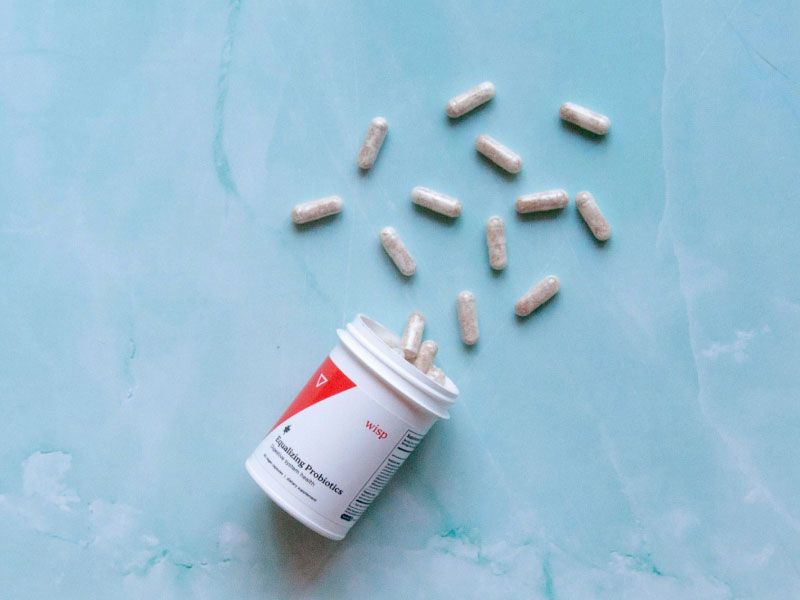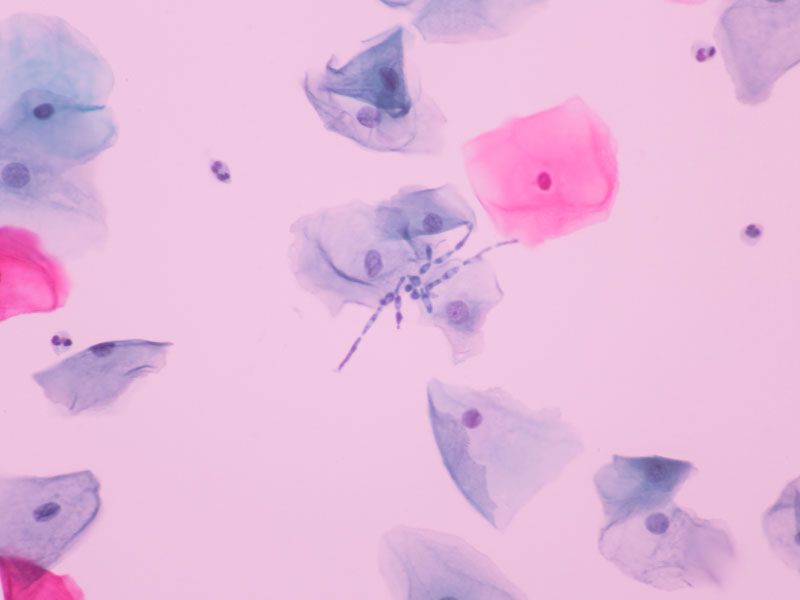
Your Vaginal Microbiome
and Fertility
By Simona Byler
July 26, 2024
If you’re trying to get pregnant, you’ve probably got a lot on your mind. Tracking your ovulation, finding your fertile window, figuring out when to have sex, remembering to take prenatal vitamins… seriously, it’s intense!
So, not to overwhelm you here, but there’s a major piece to the fertility puzzle that often gets forgotten—your vaginal microbiome. But don’t worry! We’re here to discuss all you need to know about your vaginal microbiome and fertility. Keep reading and we’ll get into how your vaginal microbiome affects your fertility, how it can affect your pregnancy, and what role recurrent infections play in the equation.
The role your vaginal microbiome plays in fertility
You have billions of helpful bacteria, fungi, and other microbiota living inside your vagina. In fact, nine percent of all the bacteria in your body live in your reproductive microbiome (1)! And out of all these microscopic actors, the real star of the show is the bacteria Lactobacillus, or lactobacilli.
Lactobacilli is the most prevalent bacteria in a well-balanced vaginal microbiome, with a few super incredible benefits. This bacteria wards off harmful pathogens, makes you less susceptible to sexually transmitted infections (STIs), and keeps your vaginal pH nice and acidic.
But when lactobacilli numbers start to dwindle, other kinds of bacteria and fungi can start proliferating and cause some potentially serious issues. Let’s discuss.
Lower genital tract infections
Alright, let’s get technical! When we talk about your lower genital tract, we’re primarily talking about your vagina. A few different infections can affect your lower genital tract and the most common among reproductive-aged women is bacterial vaginosis (BV).
Vaginal dysbiosis—aka an unbalanced vaginal microbiome—is the stepping stone to BV. BV is characterized by a decrease in lactobacilli and an increase in vaginal pH, which can affect your fertility in a number of ways.
First, studies have shown that BV is over three times more likely to be identified in women facing infertility than in those who were able to conceive naturally. BV is especially linked with tubal infertility—which happens when the fallopian tubes are blocked from tissue damage, scarring, or infection—as well as poor implantation rates for those going through in vitro fertilization (IVF) (2).
Another big-time reason why BV and a disrupted vaginal microbiome can influence your fertility? STIs! Having BV increases your risk of getting STIs, specifically gonorrhea, chlamydia, trich, herpes, HIV, and HPV (2). Certain STIs are known to contribute to infertility, which is why it’s sooo important to test yourself regularly and do your best to keep your microbiome balanced.
Finally, BV can lead to infertility by causing upper genital tract infections. What are those? We’ll discuss—but first, a recap.
A few possible reasons why BV can contribute to infertility include:
- Increased inflammation of the reproductive system
- Increased immune response
- Increased toxin production
- Disrupted cervical mucus production
- Increased risk of STIs and upper genital tract infections
Upper genital tract infections
Until a few years ago, the upper genital tract—meaning the uterus and endometrium, fallopian tubes, and ovaries—was considered to be sterile. Turns out, there are plenty of good bacteria living up there, too!
But, having BV increases your risk of developing an infection in your upper genital tract, which can impact your ability to get pregnant—just another way that your vaginal microbiome and fertility are interconnected. The two main infections here are endometritis and pelvic inflammatory disease (PID). Both endometritis and PID can happen when pathogens travel up to your uterus from your vagina.
Endometritis: Endometritis happens when you have inflammation specifically in your endometrium—aka the lining of your uterus. Endometritis impacts your fertility by making it difficult for an embryo to implant successfully into your endometrium, especially for those going through IVF (1).
Pelvic inflammatory disease (PID): Though it’s sometimes used interchangeably with endometritis, PID occurs when you have inflammation throughout your upper genital tract—not just in your endometrium. PID can cause abdominal pain and harm your uterus and fallopian tubes, leading to infertility. BV-related bacteria and STIs can cause PID—nip this infection in the bud by regularly testing for STIs and testing your vaginal microbiome!

Wisp Equalizing Probiotics
Starting at $18/ month
The Wisp Equalizing Probiotics is a daily supplement that contains 25 billion CFU’s of 9 powerhouse probiotic strains (more “good” bacteria!).

Boric Acid Suppositories
Starting at $27
An over-the-counter vaginal suppository custom-made to help prevent & relieve infections.

BV Antibiotics (Tablets or Gel)
Starting at $15
Request topical or oral prescription antibiotics to treat bacterial vaginosis.

Metronidazole Gel (Metrogel)
Starting at $90
Prescription vaginal cream to treat new or chronic BV infections from home.
How your vaginal microbiome can affect your pregnancy
Alright, so we’ve covered how your vaginal microbiome and fertility are related, but did you know that this microbiome also impacts your pregnancy? It’s complex, we know! But your vaginal microbiome can affect your pregnancy in a few different mega-important ways. Let’s discuss.
Recurrent miscarriage: Defined as having three or more consecutive miscarriages with unknown cause before 12 weeks of pregnancy, studies have found recurrent miscarriage to be associated with infections that alter the vaginal microbiome (3). This might be because of bacteria traveling from the vagina to the uterus and causing a disrupted immune response that leads to miscarriage.
Water breaking too early: FYI, this is called “premature rupture of membranes” in the medical world! When your microbiome is unbalanced, the bad bacteria cause inflammation which can lead to your water breaking before it’s supposed to.
Preterm delivery: Chorioamnionitis—or the inflammation of the placenta and other membranes—is the main cause of preterm delivery (4). And what can often lead to chorioamnionitis? You guessed it, BV. That’s why managing BV and keeping your vaginal microbiome balanced during pregnancy is so important!
Effects on the infant: Bonus content here—did you know that the vaginal microbiome “colonizes” the newborn if they’re born vaginally? Exposing the newborn to microorganisms helps kick-start their immune system and even helps their brain development (3). Just another way to demonstrate how incredible your vaginal microbiome is, and how interconnected the microbiome and pregnancy are.
Will recurrent infections make me infertile?
Vaginal infections are super common and, unfortunately, so are recurrent infections. But, not every infection will lead to infertility! The most important thing is to take a test when something feels off and treat any infections as soon as you can. (That’s why we’re here!)
On their own, recurrent BV infections are uncomfortable and annoying. But when it comes to your fertility, the issue is that recurrent BV can increase your risk of developing pelvic inflammatory disease and STIs—which can negatively impact your fertility. Specifically, the infections that are most often associated with infertility are chlamydia, gonorrhea, and PID (5).
Other commonly recurring infections, like yeast infections and UTIs, don’t have a direct impact on your fertility—but they definitely can make vaginal sex uncomfortable!
A healthy vaginal microbiome and fertility
Phew! We know that this topic is heavy, but we’re so proud that you’re digging into the important info about how your vaginal microbiome and fertility are connected. And the best thing? You are totally capable of keeping your vaginal microbiome balanced and making those good bacteria work in your favor!
The benefits of a healthy vaginal microbiome extend way beyond fertility and pregnancy, which is why we offer so many kickass products to help you keep everything balanced. We’ve got prescription BV antibiotics if you already have an infection, boric acid suppositories to help prevent and treat any infections, and Equalizing Probiotics to make sure lactobacilli are in charge down there. 💪
Being aware of your vaginal microbiome and fertility is a great first step towards making sure that infections don’t get in your way. After that? You know the drill. Test, treat, live your best life, repeat.


